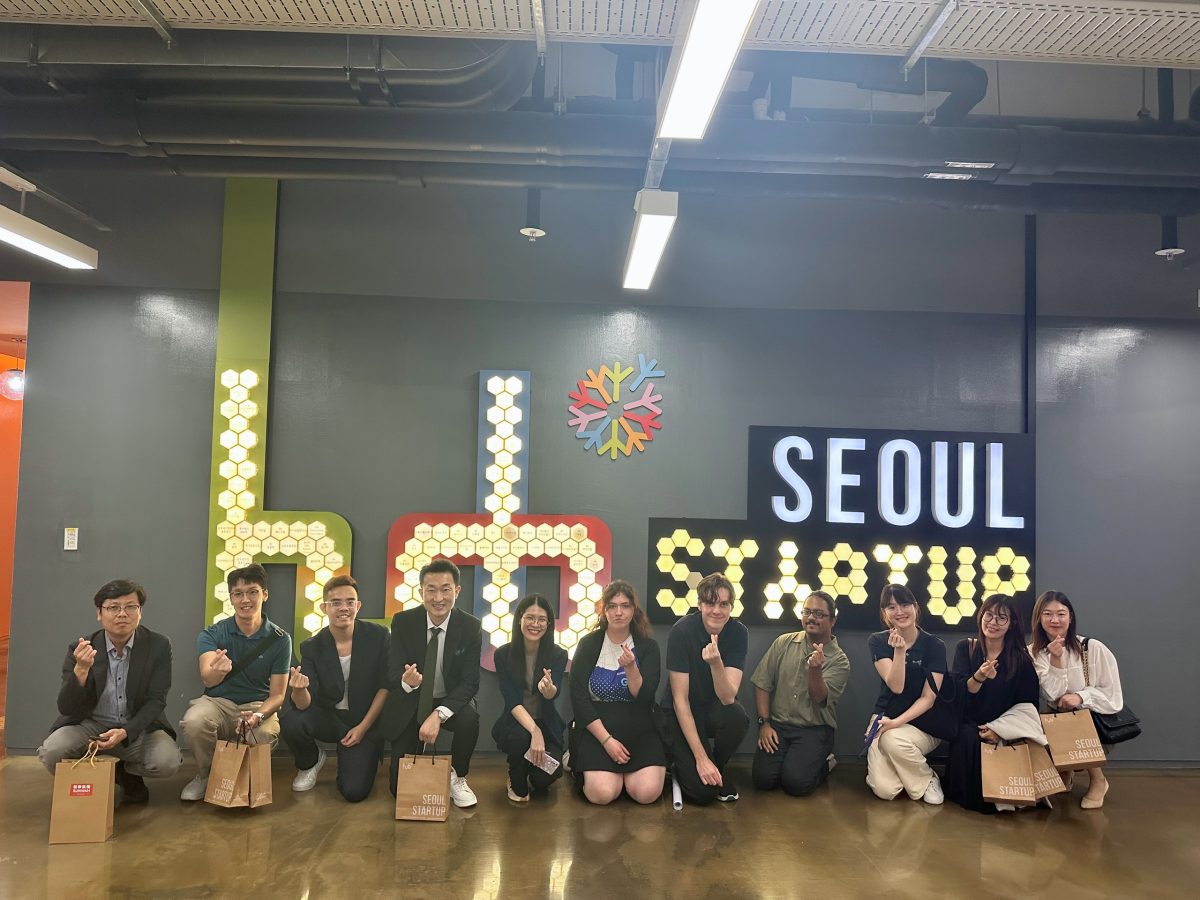After exploring the startup and innovation ecosystem in Hong Kong, the second leg of our 2024 Sunwah GYLN Innovation Trip would take our delegation to South Korea’s bustling metropolis, Seoul. Seoul is known for its rich culture and modern mindset, making it a great location to foster the growth and development of innovative projects and startups. The 3 days we spent in Seoul consisted of meetings with a plethora of startups and organizations designed to support and nurture them, similar to our activities in Hong Kong.
The first day of our trip to Seoul began with a visit to the Seoul Startup Hub in the Mapo District. We were welcomed to the building by representatives from the startup hub, along with some representatives from the Seoul Metropolitan Government who enlightened us on the activities and mission of the Seoul Startup Hub. During our fruitful discussion, we learnt that the organization supports a wide repertoire of startups by providing them with a space to incubate and nurture their innovations with state-of-the-art production and prototyping facilities as well as freely usable office spaces.
Most of the startups housed at the startup hub are product-focused and from a range of industries. For those more involved in product manufacture and prototyping, the hub supports them with facilities such as 3D printers, a workshop area, and maker spaces. One of the most unique aspects of the facility was its innovative model for food-based startups. The building allows startups to trial their products inside the local cafeteria for 3 weeks at a time, gathering feedback and payment from workers in the building before starting their ventures formally and providing an excellent variety of food to the customers. It was a pretty interesting idea, and one that everyone on the trip agreed would be great to see expanded abroad. We also had a chance to meet with key figures in the startup ecosystem and employment ecosystem in Seoul, including the Seoul minister of employment and labor, which gave us a chance to learn a bit about Seoul’s future and its dedication to innovative business, especially in the entertainment industry. Overall, the Seoul Startup Hub is an excellent resource that Korean startups can use to support their growth and innovation from the onset.
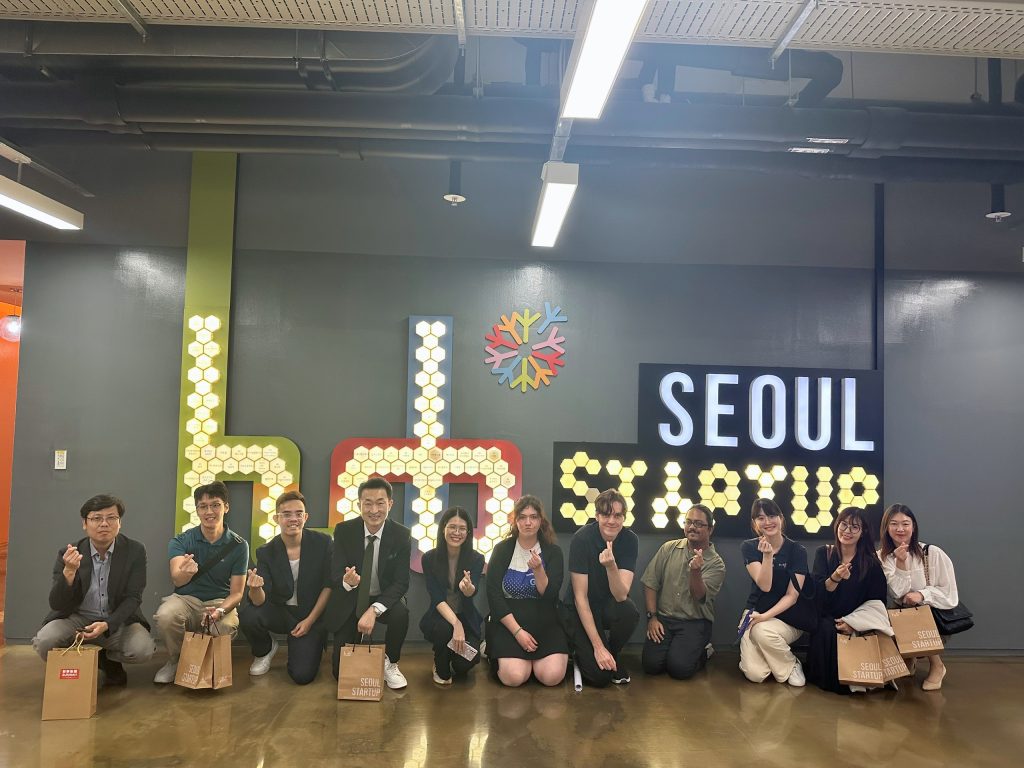
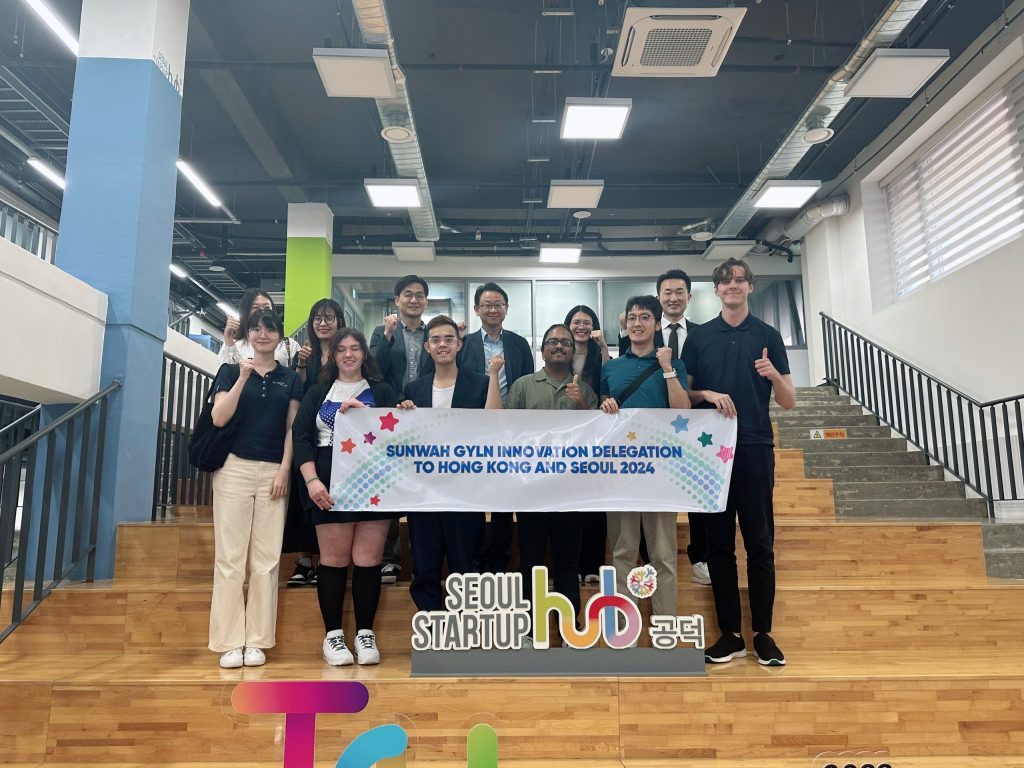
The second day of our Seoul trip was another eventful day as we were slated to visit Seoul National University (SNU). Joined by Mr. Jesse Choi from the SUNWAH Group and Prof. Phillipe Rheault from the University of Alberta’s China Institute, we met with Dr. Keon Wook Kang, a professor of Nuclear Medicine, and the head of SNU’s Center for Entrepreneurship and Innovation. Dr. Kang showed us that SNU is the top university in South Korea and this fact is further elucidated by their advanced level of support for nurturing innovation within their students and alumni. SNU has a multitude of support for innovations and startups at its campus, with centers for innovation placed within every single one of its vast array of departments. This allows each startup to receive specialized mentorship and guidance from professionals already within their field of interest. Dr. Kang also mentioned that SNU encourages interdisciplinary cooperation as well and that startups should not feel limited by their department for their entire journey. The team at SNU was very willing to answer our questions, and our discussions helped us understand further the kind of support SNU could provide for startups on their campus. After the meeting, there was also a signing of an MoU between Sunwah and SNU.
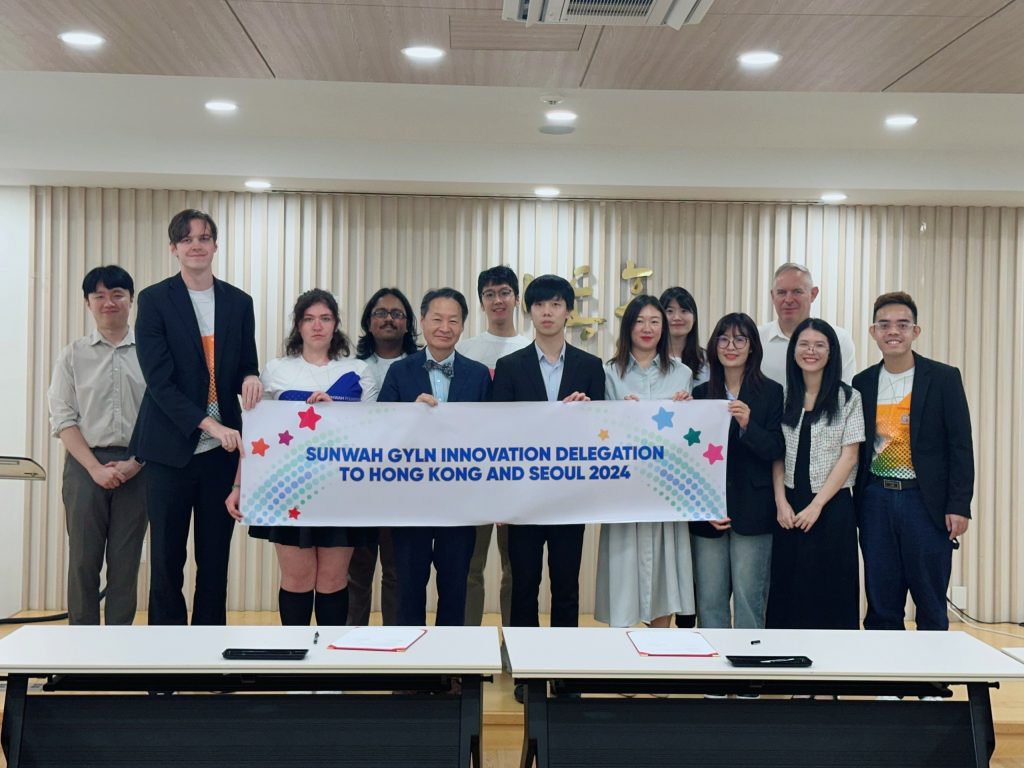
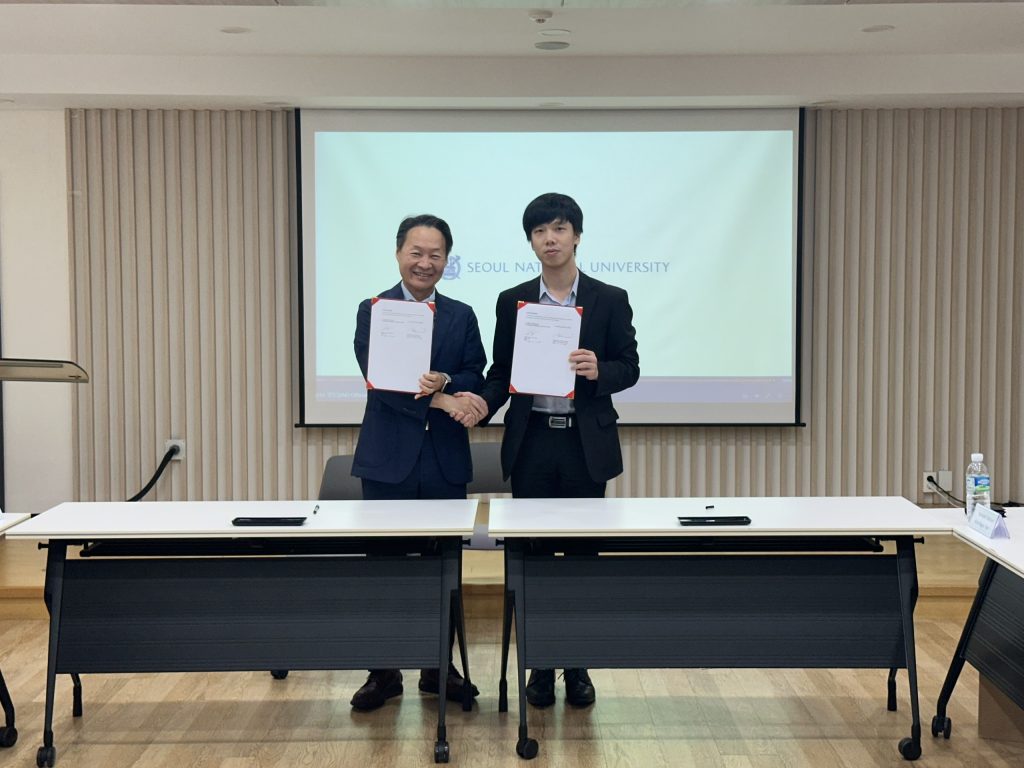
Our next stop for the day was TIPSTown, a tech-focused incubator formed from the collaboration between Korea’s Tech Incubator Program for Startups (TIPS) and the Korea Business Angels Association located in the stylish Gangnam district of Seoul. The TIPSTown itself consists of a set of multiple buildings located along the same street blocks, each of them housing a different number of startups within their walls. We were shown a presentation of how TIPS was founded and how it functions in a general sense. TIPS acts as an intermediary between startups and so-called “TIPS Operators”, which are essentially venture capital firms or investors which partner with TIPS. These startups, once formed, are presented to TIPS operators and if they are impressed, they are invested in. After a startup has been connected with an investor, TIPS gives the business the choice of continuing on its own with that investor or leveraging the facilities in one of TIPS’ incubator buildings while it continues to grow. The representatives from TIPS and KBAA mentioned how difficult it is for startups to grow past the initial stage, and expressed that their support has significantly reduced the bankruptcy rate for startups that they have taken under their wing, bringing the number down from the South Korean average of 70% down to 2.7% in a 5-year window. The facilities provided by TIPS seemed enticing for young innovators, as the buildings were running at full capacity during our visit and we were very impressed by the robust support and forward-thinking the institution provided, especially in their ability to select good businesses through the Operator program and keep those businesses afloat. After the meeting, there was also a signing of a Memorandum of Understanding between Sunwah and the KBAA.
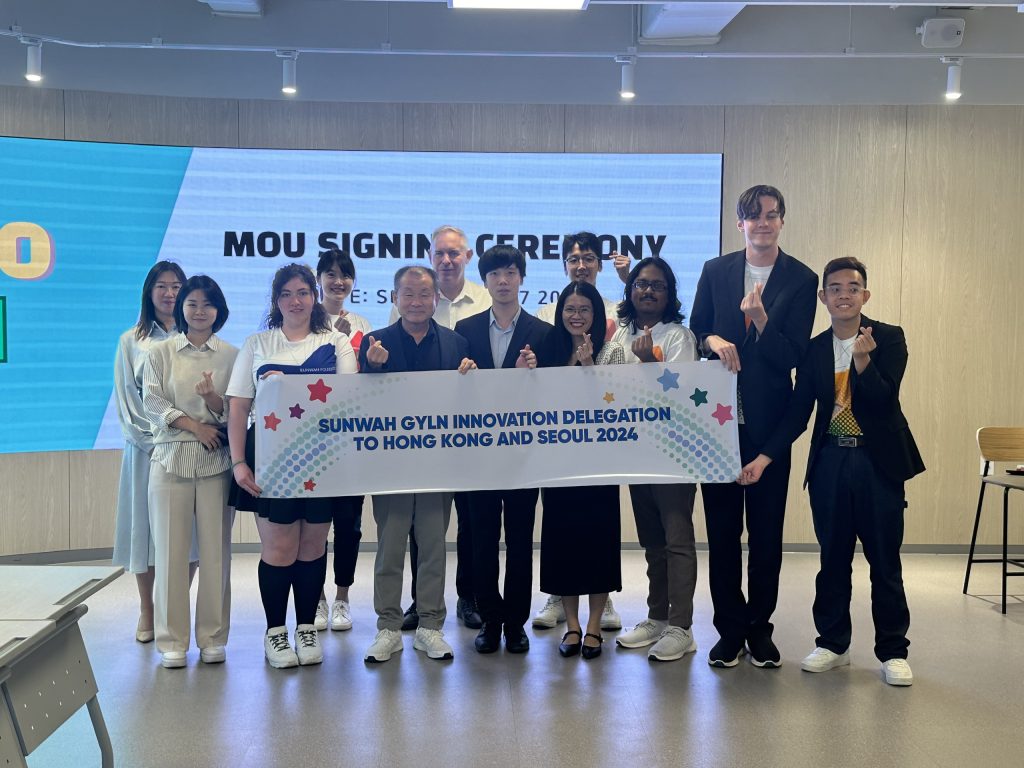
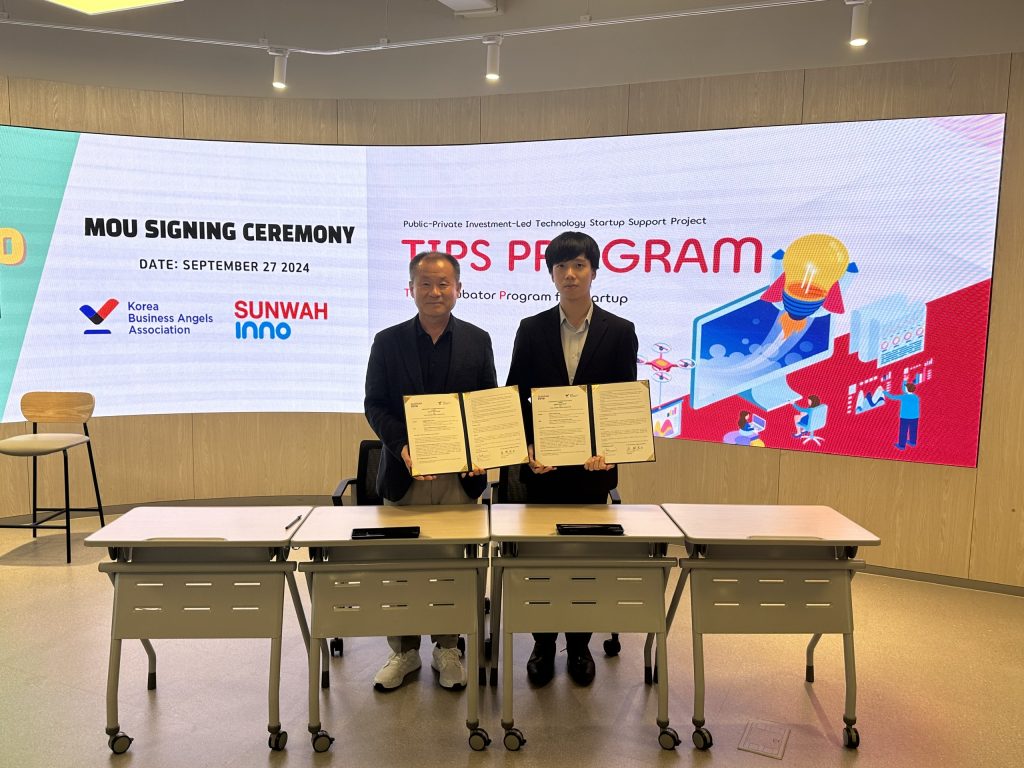
On our final day of the innovation trip, we started by visiting DareumDaleum, a food-based startup in Namyangju-si around the outskirts of Seoul. The facility we visited was the main office and production center for DareumDaleum which specialized in creating stevia-infused vegetables and fruits, flavored rice cakes, and in the future alternative meat products. We were given a full business presentation, detailing the market size, profit margins, some of the technical details behind their production process, a live demo of their product creation, and even some free samples. DareumDaleums presentation was very informative, and seeing such a detailed business pitch from a real startup gave all of the members valuable experience in understanding what investors want out of business plans, and how to communicate the value of a business effectively. But the highlight was the live demo of their infusion process and the samples that came with it, which gave us some nice insight into how the product works, along with being delicious.
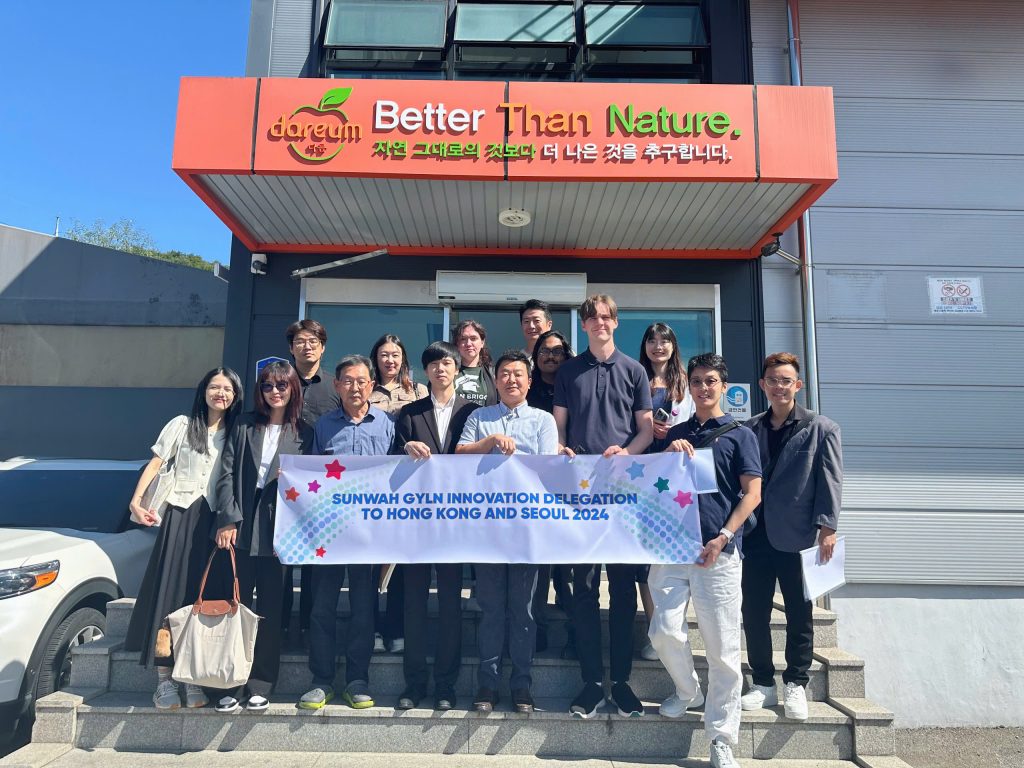
The next step of the visit included a guided tour of the production facilities as well as a demonstration of the chemical process used to infuse the fruits. For many of us in the delegation, it was our first hands-on experience with a commercial food production facility and was fascinating on a technical level to see the practicalities of a small company’s production facility. The team at DareumDaleum was also very accommodating to any questions we had about the costs associated with staffing and building the facility. Overall, the experience was great in learning about how to operate small businesses and scale into early production.
The last event in our itinerary was a meeting with the Korea Chinese Chamber of Commerce and Industry (KCCCI), which is a Korea-based offshoot of the Chinese General Chamber of Commerce (CGCC). Since SUNWAH’s own Dr. Jonathan Choi is the chairman of the CGCC in Hong Kong, we were allowed to attend a meeting with the leaders of the KCCCI and see how they support startups in Korea and foster collaboration between Korean companies and SUNWAH. After introducing ourselves, and our innovation challenge projects, we were allowed to listen to presentations by several companies supported by the KCCCI and learn about the organization’s importance in fostering trade relations between China and Korea. The companies included venture capital firms, an AI startup in the manufacturing industry and a startup in the entertainment space attempting to streamline the casting process.. Overall, meeting with the KCCCI provided valuable insight into the collaboration present between Korea and China with regards to commerce, and showed us a unique look at companies supported by the KCCCI. We also had a chance to learn more about the participants at a follow-up dinner, where we got to experience authentic Korean Cuisine.
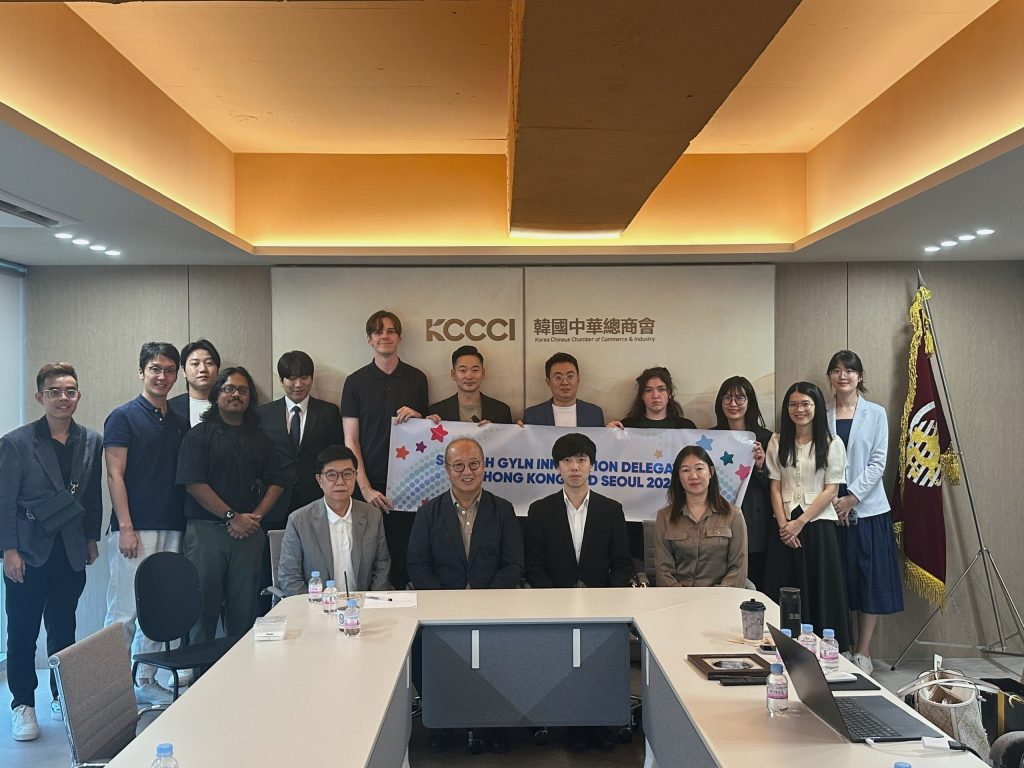
Like the trip to Hong Kong, the Seoul leg of our Innovation trip was jam-packed with valuable lessons and a myriad of novel experiences. The connections we made and the perspectives we have gained have left a lasting impact on all of us and will surely inspire our Sunwah GYLN chapters to strive for even further heights. In particular, the experience of learning about how startup infrastructure varies across the world, and the technical details of how new small businesses operate abroad was very valuable, and will no doubt serve the Sunwah GYLN members going forward in their careers and studies.

